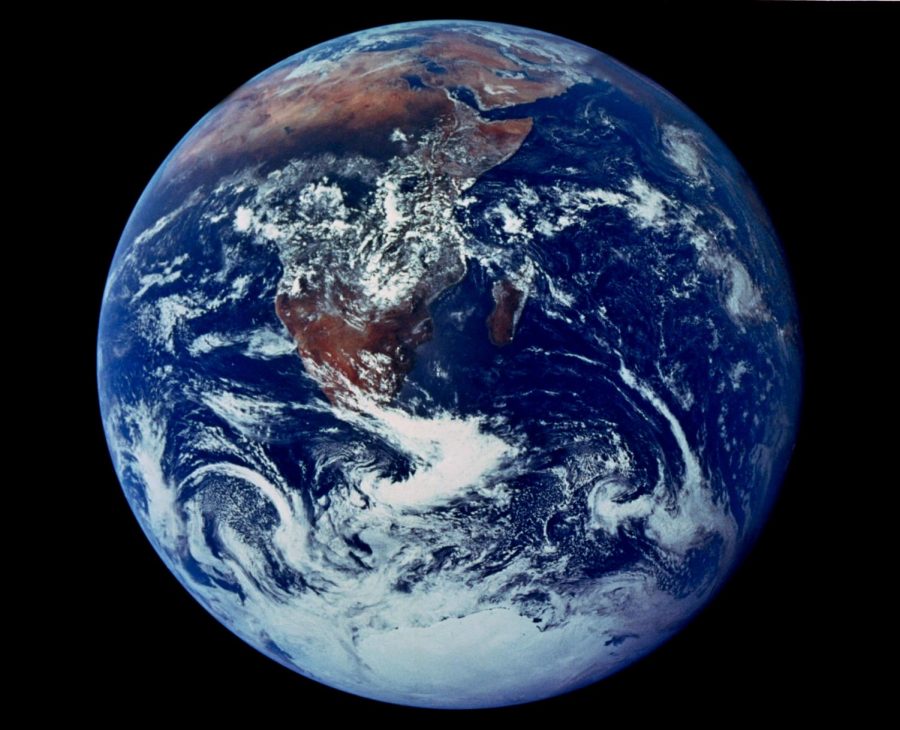Who wants to go to space?
How sci-fi sparks curiosity and what we should do with that curiosity
Photo by Submitted
“If the human race is to continue for another million years, we will have to boldly go where no one has gone before,” Stephen Hawking said.
If you had a chance to go to space, would you take it? I certainly would.
I think the opportunity to go to space would be the most incredible, once in a lifetime opportunity any of us could ever think of. The fact that humans are on the brink of regular space travel gets me excited and also anxious to get my turn to see the Earth from space.
According to Michael Sheetz of Consumer News and Business Channel, on Feb. 1 SpaceX announced it had plans to send four civilians into space at the end of 2021. This would be the first time regular civilians would ever be sent into space.
Since I was a kid, I have always dreamed of going to space. No, I didn’t go to space camp or have planets on my bed sheets. I wasn’t even that big of a fan of “Star Wars.”
Instead, I was inspired by a video game developing studio called Bungie. They created the famous “Halo” franchise on Xbox, and for the past seven years I have been playing their current franchise, “Destiny.”
In “Destiny,” you play as a guardian of the last safe city on Earth thousands of years in the future. You travel to different planets, moons and some fictional locations within our solar system learning about the past and shooting aliens.
Speaking of guardians, according to Jim Garamone of the U.S. Department of Defense, Mike Pence announced in December 2020, that Space Force soldiers would be called guardians.
This had “Destiny” fans in a frenzy as they all wondered if this was just mere coincidence, careful consideration or destiny? To me, it almost seems like prophecy.
Bungie’s response to this announcement was a tweet of the opening cutscene of “Destiny” we saw seven years ago: three astronauts who first landed on Mars.
Another cool thing about “Destiny” is how tangible its premise can seem. It isn’t like “Star Wars” with fictional planets and vague backstories.
While “Destiny” is still a sci-fi/fantasy game, its story is constantly hinting at how humanity got to this point from our golden age of space travel.
Not to mention it takes place in our home galaxy. I have explored Mercury, Venus, Mars, Earth’s moon, the asteroid belt, moons of Saturn such as Titan and Nessus and moons of Jupiter such as Europa and Io.
While these worlds have been re-imagined by humans, I cannot help but to think of what it would be like to see these places with my own eyes.
I think it would be incredible to have a chance to go where no human has gone before. I want to make new discoveries. I want to feel zero gravity. I want to ensure the survival of the human race.
We have to leave this planet to survive which is the number one reason we must colonize Mars, Jessica Orwig, of Business Insider, said.
“The dinosaurs are a classic example: They roamed the planet for 165 million years, but the only trace of them today are their fossilized remains,” Orwig said.
What if this pandemic was much worse and wiped us out? What if a nuclear war or natural disaster created an unlivable atmosphere? What if another asteroid hit?
If we were on more than one planet, our species could live on and replenish losses in the event of a disaster.
We should want to be curious and give into that curiosity. Space is exciting to me, and you can guarantee if they start looking for volunteers for a new Mars colony, I will be the first to sign up.
“Per audacia ad astra,” Bungie said.
(Through boldness to the stars.)
Plueger can be reached at pluegemf2903@uwec.edu.

Miles Plueger is a third-year public relations and marketing student. He spent quarantine teaching himself guitar. He also makes a mean chicken stir fry.


